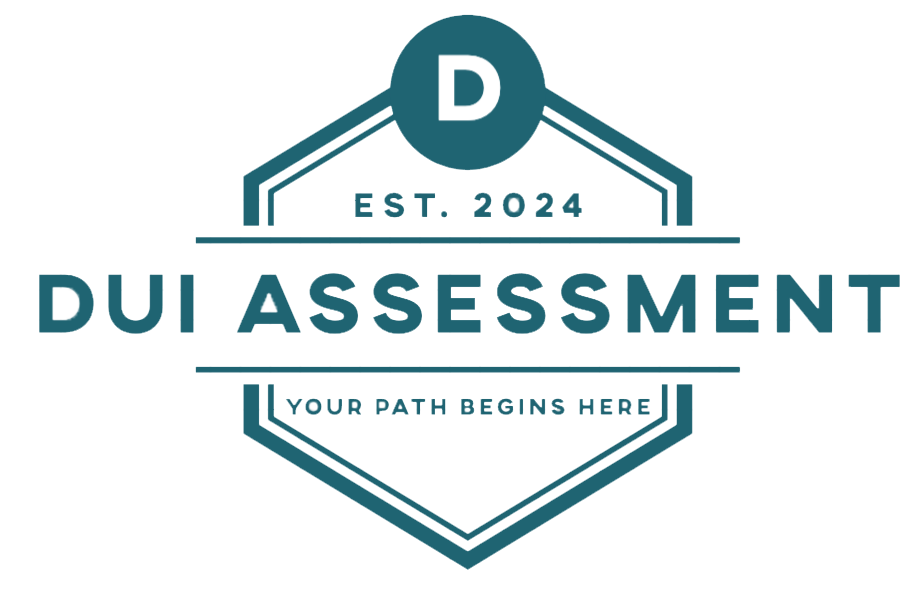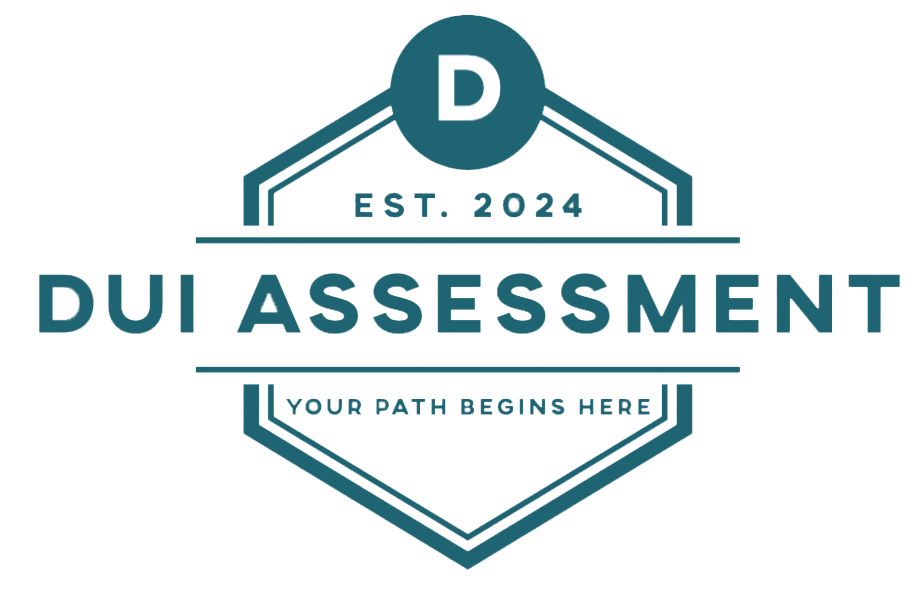If you or someone you know has been charged with a DUI (Driving Under the Influence), you are likely navigating a challenging and often confusing legal situation. One of the key steps in dealing with a DUI charge is undergoing a DUI assessment. For many, this process raises the question: What do DUI assessments consist of?
At DUI Assessment, we specialize in providing professional DUI assessments and evaluations that help individuals understand their behavior, comply with legal requirements, and take the first steps toward recovery. In this blog post, we will explore what do DUI assessments consist of, the purpose they serve, and why they are an essential part of your journey towards getting your life back on track.
What Is a DUI Assessment?
A DUI assessment is an evaluation that individuals are required to undergo when arrested for a DUI charge. This assessment is designed to evaluate the extent of a person’s alcohol or drug use, determine whether there are any underlying issues contributing to the behavior, and make recommendations for treatment, counseling, or education as necessary.
The primary goal of a DUI assessment is not just to comply with legal requirements, but also to help individuals address their behavior and make informed decisions about their future. It can also be an opportunity for personal growth, helping individuals recognize patterns of behavior that may lead to substance abuse problems.
At DUI Assessment, we understand how overwhelming it can feel to go through this process. Our team is here to support you and your loved ones through every step, providing clarity on what do DUI assessments consist of and how they can lead to positive change.
What Do DUI Assessments Consist Of?
So, what do DUI assessments consist of? DUI assessments generally consist of two major components: an interview with a trained evaluator and the completion of standardized questionnaires or screening tools. Let’s take a closer look at each part of the assessment process:
1. The Interview: Getting to Know You
The first part of a DUI assessment is an interview with a licensed professional who will ask you a series of questions. The purpose of this interview is to get a deeper understanding of your alcohol or drug use patterns, mental health history, personal background, and any other factors that may have contributed to the DUI charge.
The interviewer will likely ask questions such as:
- How often do you consume alcohol or drugs?
- Have you ever had a previous DUI or other legal issues?
- What is your family and social history?
- Do you have any mental health concerns, such as depression or anxiety?
- Have you participated in any previous treatment or rehabilitation programs?
The purpose of this interview is not to judge or punish you, but to gain an accurate picture of your behavior and any potential risks. By being open and honest during this portion of the assessment, you allow the evaluator to make the most informed recommendations for your treatment.
Typically, the interview will last about 30 minutes to an hour. The evaluator will ask follow-up questions if needed to clarify any information, and you should feel free to ask questions or express concerns if you don’t fully understand something.
2. Standardized Screening Tools
In addition to the interview, what do DUI assessments consist of also includes the completion of one or more standardized screening tools. These tools are scientifically designed to assess the severity of a person’s substance use and identify any potential signs of addiction or dependency.
Some common screening tools used in DUI assessments include:
- Alcohol Use Disorders Identification Test (AUDIT): This tool is used to assess the frequency and intensity of alcohol use, as well as the potential for alcohol-related problems.
- Drug Abuse Screening Test (DAST): The DAST is used to evaluate a person’s drug use history and whether their behavior might be indicative of drug dependency.
- Substance Abuse Subtle Screening Inventory (SASSI): This inventory uses a variety of questions to screen for both drug and alcohol addiction, providing a comprehensive understanding of an individual’s substance use.
The duration of this portion of the assessment can vary depending on the tool used, but it typically takes anywhere from 10 to 30 minutes to complete. The answers provided will be carefully reviewed by the evaluator, who will use the results to gauge the severity of the substance use and recommend any necessary treatment or intervention.
3. Assessment Results and Recommendations
Once the interview and screening tools have been completed, the evaluator will analyze the information collected to determine the appropriate recommendations. These recommendations are based on the findings of the assessment and may include:
- Educational programs: Many individuals are referred to alcohol or drug education classes that aim to provide awareness and knowledge about the dangers of substance abuse and safe driving practices.
- Counseling or therapy: If the evaluator determines that there are signs of addiction or underlying mental health concerns, they may recommend individual or group counseling, or even therapy sessions to address these issues.
- Substance abuse treatment programs: If necessary, you may be referred to an inpatient or outpatient treatment program for alcohol or drug rehabilitation. This could involve a longer-term commitment to recovery and would be tailored to your specific needs.
The evaluator will provide a written report of the results, which will be submitted to the court or relevant authorities. This report will outline the evaluator’s findings, the severity of the substance use, and any recommendations for treatment or education programs. The recommendations are not meant to punish you but rather to help address any issues that contributed to the DUI charge and reduce the likelihood of reoffending in the future.
Why Do DUI Assessments Matter?
At this point, you might be wondering: Why do DUI assessments matter? What’s the significance of this evaluation, and how does it help you or your loved one move forward after a DUI charge?
DUI assessments are important for several key reasons:
1. Legal Compliance
First and foremost, completing a DUI assessment is often a legal requirement following a DUI arrest. The court will typically order that you undergo an assessment as part of the sentencing or probation process. Failure to comply with this requirement can lead to further legal complications, including fines, extended probation periods, or even jail time.
In many cases, the assessment will also help guide the court’s decisions regarding treatment programs or other interventions that might be necessary. The evaluator’s report provides a professional, objective assessment of your behavior and needs, which the court will use when making decisions about your case.
2. Personal Insight and Growth
Beyond its role in the legal process, a DUI assessment offers valuable personal insight. It provides an opportunity for self-reflection, helping you identify any patterns of alcohol or drug use that may have contributed to your DUI charge. Recognizing these patterns is a critical first step toward making positive changes in your behavior.
If the assessment uncovers underlying mental health concerns, such as anxiety, depression, or stress, it provides a roadmap for addressing these issues and improving your overall well-being. Many individuals find that the assessment process helps them better understand themselves, their behaviors, and the factors that may have led to their legal troubles.
3. Tailored Treatment Plans
The recommendations provided by the DUI assessment are designed to address your specific needs and challenges. Whether you require substance abuse education, counseling, or a full treatment program, these recommendations are tailored to help you make meaningful changes and reduce the risk of future offenses.
By following through with the recommended treatment plan, you can take proactive steps toward recovery and avoid the possibility of future DUIs. Addressing the root causes of your behavior, whether they involve alcohol use, drug use, or mental health concerns, helps ensure that you are better equipped to make healthier decisions moving forward.
4. Preventing Future DUI Offenses
Ultimately, one of the most important reasons why DUI assessments matter is their role in preventing future DUI offenses. The purpose of the assessment is not just to comply with the court’s requirements but to provide you with the tools, resources, and support you need to avoid future legal trouble. Whether through education, counseling, or rehabilitation, the assessment helps identify and address issues that could lead to future DUIs, ultimately reducing the risk of reoffending.
5. Improved Life Quality and Relationships
A DUI assessment can also positively impact your overall quality of life. By addressing substance use or mental health issues, you can improve your relationships with family, friends, and colleagues. Many individuals report feeling a renewed sense of self-awareness and purpose after completing a DUI assessment and following through with the recommended treatment.
6. Regaining Control Over Your Life
Finally, undergoing a DUI assessment is an important step in regaining control of your life. It’s an opportunity to make informed decisions, seek help if needed, and rebuild the life that you deserve. With the right support, you can emerge from this process stronger and more focused on your personal well-being.
Getting a DUI Assessment With Us
At our center, we understand the challenges and complexities of going through a DUI assessment. Our team of experienced professionals is dedicated to providing comprehensive and compassionate care throughout the evaluation process. We strive to make this experience as seamless and supportive as possible, with the ultimate goal of helping you get your life back on track.
When you come to us for a DUI assessment, you can expect a thorough and unbiased evaluation from one of our trained assessors. Our evaluations are conducted in a non-judgmental manner, and we respect your privacy and confidentiality throughout the process.
Our team will work closely with you to gather all necessary information, including details about your current substance use, past history, and any underlying mental health concerns. We will also discuss the circumstances surrounding your DUI charge and provide education and guidance on how to prevent future offenses.
Based on our findings, we will then outline a personalized treatment plan that addresses your specific needs and challenges. This may include substance abuse education, counseling, or other interventions as needed. Our goal is to help you make positive changes in your life and reduce the likelihood of reoffending in the future.
If you or a loved one has recently received a DUI charge, don’t hesitate to reach out to us for a professional assessment. Our team is here to support you on your journey towards recovery and personal growth. With our expert guidance and resources, you can take control of your life and prevent future DUI offenses.
Get Help from Us
If you’re wondering what do DUI assessments consist of, we hope this blog post has provided a comprehensive overview of the process. From the interview to the screening tools and the final recommendations, DUI assessments are a crucial part of the legal and recovery process. At DUI Assessment, we are here to guide you through every step of this journey, providing the support, expertise, and resources you need to get your life back on track.
Whether you are required to undergo a DUI assessment by the court or simply want to understand your behavior better, we are here for you. Let us help you take the first step toward recovery, healing, and a brighter future. Give us a call at (888-896-7893) or visit our website at www.duiassessment.com.



